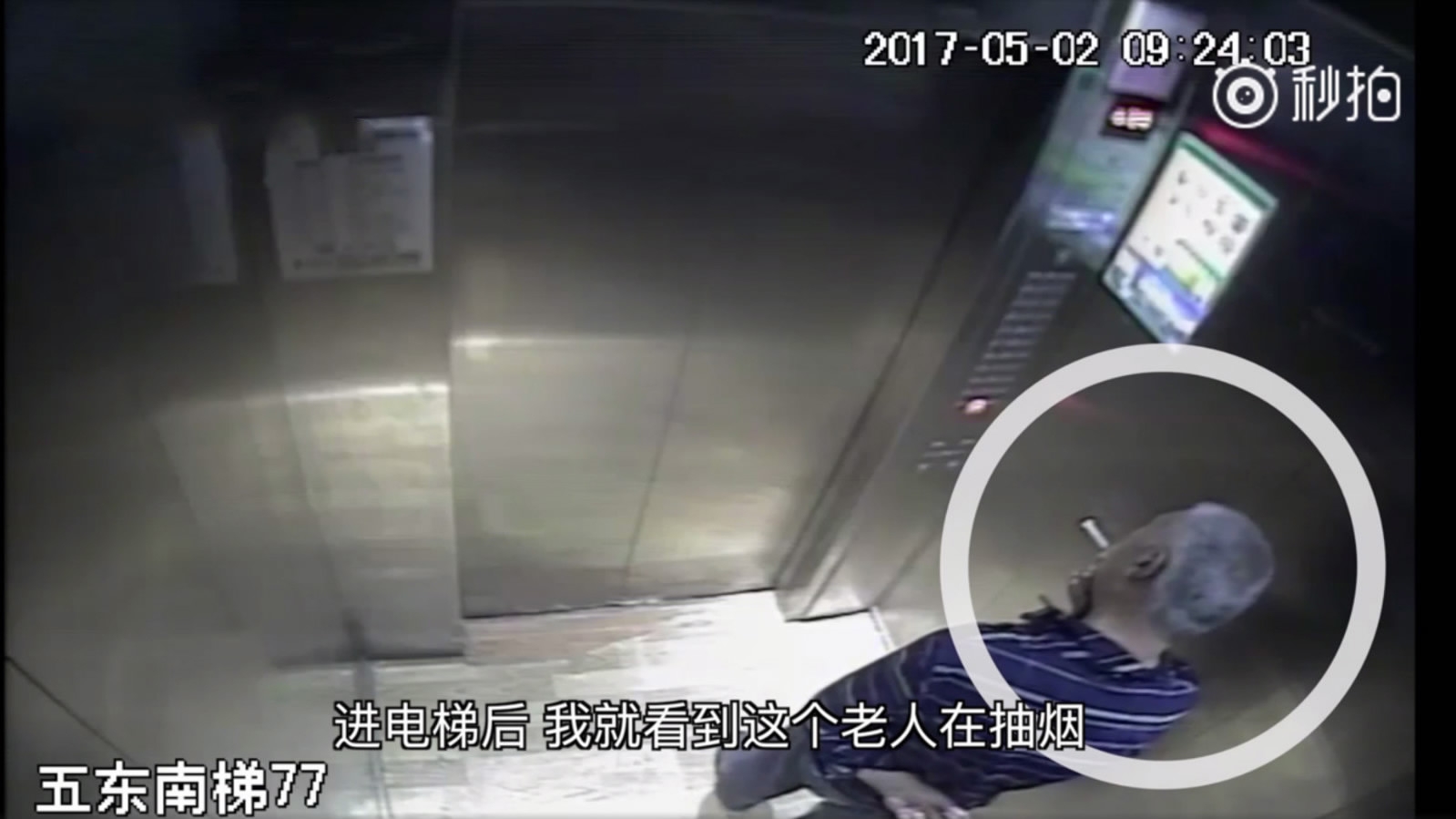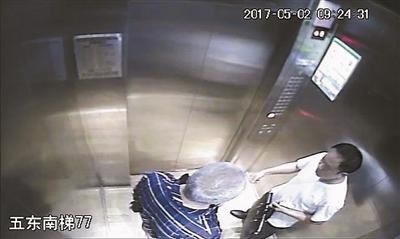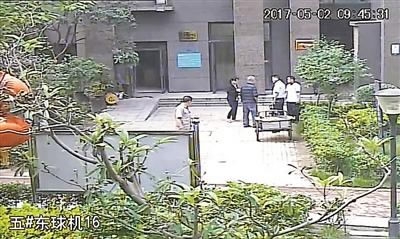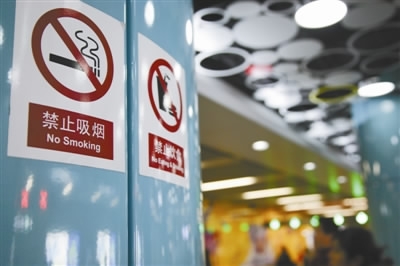
China
22:26, 04-Nov-2017
Elderly man's death after smoking dispute provokes court battle
CGTN

A relative of an elderly man who died after an argument in an elevator over smoking has appealed against the compensation ordered by a Chinese court.
The man, whose name has not been released, reportedly suffered a heart attack in May after the defendant in the case, Yang Huan, tried to dissuade him from smoking in an elevator.

Screenshot of surveillance camera of the argument over smoking.
Screenshot of surveillance camera of the argument over smoking.
Zhang Yong, the elder’s son-in-law , sought 400,000-yuan compensation (about 60,340 US Dollars) but was awarded just 15,000 yuan (2,263 US dollars). A judgment in the appeal is awaited.
The lower court in Zhengzhou, central China’s Henan Province, heard that Yang found the senior citizen smoking inside an elevator and told him of the dangers of smoking, especially of the second-hand smoke.
An argument ensued as Yang tried to stop the elderly man from continuing to smoke in such a confined space.
“We argued from Floor 14 where I entered the elevator to Basement 1. The elder should have left on the ground floor, but he still bickered with me,” Yang told the Beijing Youth Daily. “And then we went back up to Floor 1 as I suggested to arbitrating by the property management.”
Yang stated that as a doctor, he had full knowledge of the harm second-hand smoke could do to people close by and stressed that he just wanted to let the elderly man know the truth without any verbal aggression.
Yang said he removed himself from the argument after the staff from the property management got involved.
“I left then to collect my parcel but I heard of the elderly suffering a sudden heart stroke and rushed to apply an emergency treatment to him, and the staff immediately called an ambulance. But unfortunately the elderly man died,” Yang recalled.

Another screenshot of surveillance camera.
Another screenshot of surveillance camera.
Zhang Yong, the elder’s son-in-law told the Beijing Youth Daily that he called the police but the police advised that they should adopt a conciliatory attitude as the case was not a criminal one.
“I met Yang at the police station," he said. "He thought he did nothing wrong and very numb to the incident. He knelt down in front of us.”
Zhang said that he believed that Yang had insulted his father-in-law and that caused him to be very upset.
However, Yang denied all what Zhang said and asserted that he was threatened and forced to kneel down.
Zhang said he had no choice but turn to a local court for judgment. After four months of investigation and judging, the court in Jinshui District, Zhengzhou City ruled that Yang pay 15,000 yuan as no formal link was found between the argument and the man's death.
The late elder’s family rejected the award and told the Beijing Youth Daily that the court had not referred to evidence of written recordings offered by the property management on the day.

Screenshot of surveillance camera
Screenshot of surveillance camera
“We were not there when the incident happened. We did not know what they were talking because the surveillance camera was without sound. We hope that the court could refer to some written recordings,” said Zhang.
The Intermediate People’s Court of Zhengzhou has heard the appeal of the bereaved but has not released its verdict so far.
Netizens have taken to the social media to pour out their ideas as the family has applied for a second court trial.
“Why did he smoke in the elevator as he was aged and had a heart attack?” asked @lzkanwokuaikanwo.
“Smoking in the public is against the law. The doctor was on his duty to stop his smoking. The doctor is a good citizen and a good doctor. Why was he blamed as he did not apply any violence or verbal aggression?...” commented @Huoxingguyun1126

Weibo Photo
Weibo Photo
China has been carrying out the WHO Framework Convention on Tobacco Control since 2006. Cities across the country have drafted regulations to restrain people from smoking in public and indoors. Beijing, for example, applied a smoking ban to all indoor spaces in 2016 and a hotline is in place for public reporting and supervision.
620km

SITEMAP
Copyright © 2018 CGTN. Beijing ICP prepared NO.16065310-3
Copyright © 2018 CGTN. Beijing ICP prepared NO.16065310-3